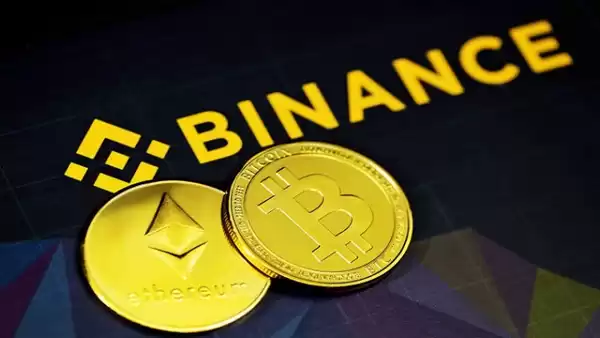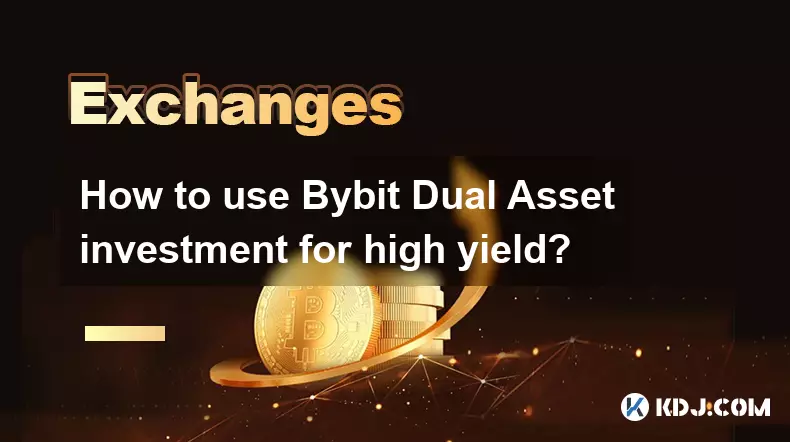-
 bitcoin
bitcoin $87959.907984 USD
1.34% -
 ethereum
ethereum $2920.497338 USD
3.04% -
 tether
tether $0.999775 USD
0.00% -
 xrp
xrp $2.237324 USD
8.12% -
 bnb
bnb $860.243768 USD
0.90% -
 solana
solana $138.089498 USD
5.43% -
 usd-coin
usd-coin $0.999807 USD
0.01% -
 tron
tron $0.272801 USD
-1.53% -
 dogecoin
dogecoin $0.150904 USD
2.96% -
 cardano
cardano $0.421635 USD
1.97% -
 hyperliquid
hyperliquid $32.152445 USD
2.23% -
 bitcoin-cash
bitcoin-cash $533.301069 USD
-1.94% -
 chainlink
chainlink $12.953417 USD
2.68% -
 unus-sed-leo
unus-sed-leo $9.535951 USD
0.73% -
 zcash
zcash $521.483386 USD
-2.87%
is binance decentralized
Despite its centralized origins, Binance has introduced decentralized components like Binance DEX and BNB Chain, empowering users to engage in a more decentralized crypto ecosystem while offering a comprehensive suite of trading options.
Nov 26, 2024 at 09:00 am

The rise of cryptocurrencies has given rise to numerous cryptocurrency exchanges, each offering different features, functionalities, and levels of decentralization. Among these exchanges, Binance has emerged as one of the most prominent and popular platforms, with a vast user base and high trading volumes. However, questions linger regarding the level of decentralization that Binance offers, as it is often compared to centralized exchanges like Coinbase and Gemini. This article aims to provide a comprehensive analysis of Binance's decentralization, examining its key features and comparing it to other leading exchanges in the industry.
Understanding Decentralization in Crypto ExchangesBefore delving into Binance's decentralization, it is essential to understand what decentralization entails in the context of crypto exchanges. Decentralization refers to the distribution of power and control across a network, rather than concentrating it in a single entity or authority. In the case of crypto exchanges, decentralization involves aspects such as:
- Ownership and governance: Are the exchange's operations controlled by a single entity (centralized) or is it owned and governed by a distributed network of participants (decentralized)?
- Transaction processing: Where are transactions processed and stored? Are they validated and recorded on a centralized server or a distributed ledger (blockchain)?
- Trading model: Does the exchange operate a traditional order book model where buyers and sellers interact directly, or does it use an automated market maker (AMM) model that facilitates trades through smart contracts?
Binance began its journey as a centralized exchange but has since taken steps towards decentralization. However, it is important to note that Binance still operates certain centralized components, such as its custodial wallet service, which holds user funds on the exchange's behalf.
Key Features of Binance's Decentralization:- Binance Chain (BNB Chain): Binance launched its own blockchain, BNB Chain (formerly known as Binance Smart Chain), which serves as the foundation for its decentralized services. BNB Chain allows users to create and trade BEP-20 tokens, interact with smart contracts, and participate in decentralized applications (dApps) built on the network.
- Binance DEX: Built on BNB Chain, Binance DEX is a decentralized exchange that enables peer-to-peer trading of cryptocurrencies. Unlike the centralized Binance exchange, Binance DEX does not hold user funds or facilitate transactions directly. Instead, it provides a platform where users can connect their wallets and trade directly with each other.
- Binance Custody: Binance Custody is a regulated custodian service designed to provide secure storage and asset management for institutional investors. Unlike the exchange's custodial wallet service, Binance Custody offers decentralized custody through a partnership with Fireblocks, a leading provider of digital asset custody solutions.
- Binance Academy and Research: Binance operates an educational platform called Binance Academy, which provides resources and training materials on blockchain technology, cryptocurrencies, and decentralized finance. Additionally, Binance Research conducts market analysis and publishes reports on the crypto industry, contributing to the dissemination of knowledge and promoting decentralization.
- Uniswap: A decentralized exchange that operates on the Ethereum blockchain and uses an AMM model for trading.
- Sushiswap: Another decentralized exchange on the Ethereum blockchain, offering similar functionality to Uniswap but with additional features and community governance.
- PancakeSwap: A decentralized exchange built on BNB Chain, providing a wide range of trading pairs and features tailored to the Binance ecosystem.
- DODO: A decentralized exchange that employs a unique "proactive market maker" algorithm to provide liquidity and reduce slippage.
- Balancer: A decentralized exchange that allows users to create and manage custom liquidity pools, enabling more flexibility in trading strategies.
- Binance vs. Coinbase: While Coinbase is a popular centralized exchange known for its ease of use and compliance, Binance offers a more comprehensive suite of services, including decentralized offerings like Binance DEX and BNB Chain.
- Binance vs. Gemini: Similar to Coinbase, Gemini is a centralized exchange that emphasizes security and compliance. However, Binance's decentralized components and broader range of trading options make it a more attractive choice for users seeking a balance between centralization and decentralization.
- Binance vs. Kraken: Kraken is another centralized exchange that offers a wide selection of cryptocurrencies and trading pairs. However, Binance's decentralized services, such as Binance DEX and its own blockchain, provide users with additional flexibility and control over their assets.
- Binance vs. KuCoin: KuCoin is a centralized exchange that offers a range of trading options, including margin trading and futures. While KuCoin has a dedicated decentralized exchange (KuMEX), its overall level of decentralization is lower compared to Binance's offerings.
Binance has made significant strides in embracing decentralization, introducing a range of services and platforms that empower users to participate in a more decentralized ecosystem. While Binance still operates centralized components, its decentralized offerings, such as Binance DEX and BNB Chain, provide users with greater autonomy and control over their funds and trading activities. Compared to other leading exchanges, Binance's decentralized services and broader range of offerings make it a strong choice for users seeking a more balanced approach between centralization and decentralization. As the crypto industry continues to evolve, it remains to be seen how Binance and other exchanges will navigate the path towards greater decentralization and empower users with more autonomy and control over their digital assets.
Disclaimer:info@kdj.com
The information provided is not trading advice. kdj.com does not assume any responsibility for any investments made based on the information provided in this article. Cryptocurrencies are highly volatile and it is highly recommended that you invest with caution after thorough research!
If you believe that the content used on this website infringes your copyright, please contact us immediately (info@kdj.com) and we will delete it promptly.
- Maximizing Crypto Mining Rewards: The Crucial Role of Software in 2026
- 2026-02-11 13:15:01
- Bitcoin Chart Analysis: Navigating the Bear Market Amidst Shifting Technicals and Whale Activity
- 2026-02-11 13:10:02
- NYC's Got Game: Trivia Nights Offer Free Drinks and Fierce Fun!
- 2026-02-11 13:10:02
- Crypto Rug Pulls, AI Platforms, and the Shadow of Faked Suicide: NYC's Digital Wild West
- 2026-02-11 12:50:01
- Ray Dalio Sounds the Alarm on CBDCs, Financial Privacy, and the Shifting Power Balance
- 2026-02-11 10:30:01
- Coin Community Bids Farewell to Bill Dimitropoulos, Marking a Profound Loss
- 2026-02-11 06:50:02
Related knowledge

How to use Bybit VIP program to reduce trading fees?
Feb 11,2026 at 07:19am
Understanding Bybit VIP Program Structure1. The Bybit VIP program categorizes users into tiers based on their 30-day average net asset value and tradi...

How to buy JasmyCoin (JASMY) on Bybit?
Feb 09,2026 at 03:40am
Creating a Bybit Account1. Navigate to the official Bybit website and click the 'Sign Up' button located in the top-right corner. 2. Enter a valid ema...

How to contact Bybit customer support for urgent help?
Feb 05,2026 at 11:40pm
Accessing Bybit Support via Live Chat1. Log in to your Bybit account using the official website or mobile application. 2. Navigate to the Help Center ...

How to buy Injective (INJ) on Bybit in 2026?
Feb 09,2026 at 05:39pm
Account Registration and Verification Process1. Navigate to the official Bybit website and click the “Sign Up” button located in the top-right corner....

How to use Bybit Dual Asset investment for high yield?
Feb 06,2026 at 12:20am
Understanding Bybit Dual Asset Investment Mechanics1. Dual Asset Investment is a structured product offered by Bybit that combines a stablecoin deposi...

How to buy Celestia (TIA) on Bybit exchange?
Feb 10,2026 at 09:39pm
Creating a Bybit Account1. Visit the official Bybit website and click the “Sign Up” button located at the top right corner of the homepage. Enter a va...

How to use Bybit VIP program to reduce trading fees?
Feb 11,2026 at 07:19am
Understanding Bybit VIP Program Structure1. The Bybit VIP program categorizes users into tiers based on their 30-day average net asset value and tradi...

How to buy JasmyCoin (JASMY) on Bybit?
Feb 09,2026 at 03:40am
Creating a Bybit Account1. Navigate to the official Bybit website and click the 'Sign Up' button located in the top-right corner. 2. Enter a valid ema...

How to contact Bybit customer support for urgent help?
Feb 05,2026 at 11:40pm
Accessing Bybit Support via Live Chat1. Log in to your Bybit account using the official website or mobile application. 2. Navigate to the Help Center ...

How to buy Injective (INJ) on Bybit in 2026?
Feb 09,2026 at 05:39pm
Account Registration and Verification Process1. Navigate to the official Bybit website and click the “Sign Up” button located in the top-right corner....

How to use Bybit Dual Asset investment for high yield?
Feb 06,2026 at 12:20am
Understanding Bybit Dual Asset Investment Mechanics1. Dual Asset Investment is a structured product offered by Bybit that combines a stablecoin deposi...

How to buy Celestia (TIA) on Bybit exchange?
Feb 10,2026 at 09:39pm
Creating a Bybit Account1. Visit the official Bybit website and click the “Sign Up” button located at the top right corner of the homepage. Enter a va...
See all articles










































































